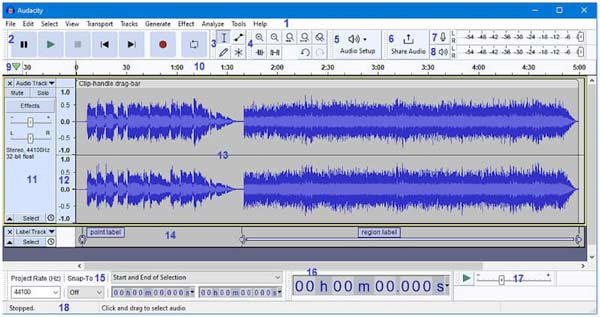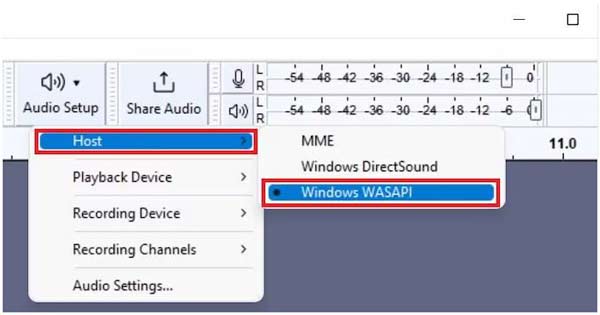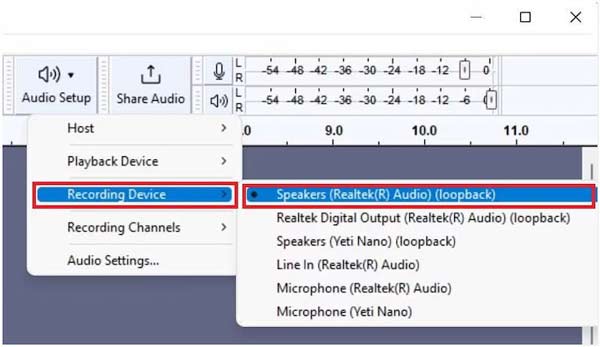Audacity is a long-known audio recording and editing software. It has become one of the most popular tools for capturing and manipulating sound. It can record live audio, edit audio tracks with effects, and export in multiple formats. Audacity is commonly used by podcasters, musicians, and voice-over artists for their professional and personal projects. For anyone seeking high-quality audio recording, Audacity recording software is definitely worth considering. However, if you are a beginner and not yet familiar with its capabilities, there’s no need to worry. It is approachable with some guidance and practice. This post will delve into everything you need to know about Audacity. We will cover its features, advantages, disadvantages, and how to use it. Our goal is to provide a comprehensive guide that helps you fully understand the software. By the end of this post, you will learn how Audacity works and its key functionalities. Additionally, you will learn how to set it up for recording and maximize its potential.


Audacity is an audio recording software that runs on Windows, Mac, and Linux. It allows you to record audio, as well as digitize recordings from other media. You can work with multiple tracks simultaneously to layer and mix audio. Additionally, Audacity includes a range of built-in effects such as equalization, compression, and noise reduction. For audio analysis, the software offers tools such as spectrograms and time-frequency displays.
What You Need to Know About Audacity:
Overall Ratings (Out of 5 stars) :
Compatibility:
Editing Features:
Ease of Use:
Speed Performance:
Output Quality:
Knowing what the Audacity recording can do helps you make the most of its features. Being aware of its functionality allows you to compare it with other audio editing tools. Understanding these advantages also helps in achieving professional results.
When I tested Audacity with an internal laptop microphone, it performed reliably. The waveform display is responsive, and you can monitor levels while recording. I appreciate how easily I can switch input devices, record from the microphone, or capture internal audio output.
I recorded in various settings, at 44100 Hz, and also at higher rates where supported. Audacity preserved quality well; there was minimal noise, provided the input was of good quality. This makes it a preferred choice for podcasters, musicians, and audio editors.
In my tests, using the Noise Reduction feature greatly reduced constant background noises. If you push settings too hard, you start to hear distortion or artifacts. This feature is beneficial for eliminating background noise, thereby enhancing the clarity of recordings.
Audacity supports a wide range of output formats, including MP3, WAV, FLAC, and OGG. I exported files to different formats without issues. It retains acceptable quality, especially when using higher bit rates or less compression formats.
In my experience, Audacity gives control over sample rate, bit depth, and various effect settings. There are built-in effects and support for third-party plugins. These features offer extensive flexibility for audio editing and enhancement.
Understanding the disadvantages of Audacity Audio Recorder is just as important as knowing its advantages. Being aware of its shortcomings helps you plan the workflow effectively and avoid unexpected problems. This lets you decide when to use it versus other audio tools.
When recording with internal microphones, I noticed some issues with audio quality. The recording sounded somewhat bubbly, which was attributed to the automatic noise reduction feature. Also, it requires specific configurations to record internal system audio.
WWhile Audacity supports various output formats, converting to lossy formats can result in a loss of quality. Exporting to formats like MP3 or M4A leads to unavoidable sound quality degradation.
It works well for constant background noises such as a hum, whistle, or buzz. However, it is less effective for variable or loud noise, or when the noise frequencies are very close to the desired audio. Also, excessive noise reduction introduces artifacts and reduces the recording’s clarity.
While working on extensive projects with multiple tracks and effects, I have experienced performance slowdowns. After updating the software, the recording became echoey and had volume inconsistencies.
Unlike some audio editing software, Audacity does not provide real-time previews for many effects. In other words, you must apply effects, listen to the result, and then undo or adjust as necessary.
After exploring what Audacity is, its key features, advantages, and disadvantages, it’s time to move to the exciting part: recording audio. Audacity allows you to capture sound from internal system audio, the microphone, and instruments. Understanding the setup process ensures that your recordings are clear, high-quality, and correctly routed from your devices.
Here’s how to record desktop audio with Audacity on Windows 10:
1. Upon opening Audacity, navigate to the Audio Setup tab, click Host, and select Windows WASAPI. This allows Audacity to capture both system audio and microphone input effectively.

2. Now, switch to the Recording Device option and select the output you want to record. For capturing desktop audio, choose Speakers (loopback).

3. Click Red Record to begin the recording. Speak, play music, or perform the audio task you want to capture. Once you’re done, simply click the Stop button.

By following these three simple steps, you can successfully perform an audio recording in Audacity. If you want to edit an audio recording, you can import or use an existing one. To remove an unwanted audio recording, select the audio’s starting point and drag the cursor to the right over the waveform. Once you have your selection, press Delete to remove the selected part.

Although Audacity recording software is a powerful tool, it is not the only option available. There are alternatives that offer extensive features and greater flexibility, and one of them is AnyMP4 Screen Recorder. It is fully available with Mac OS X 10.12 (and later) and Windows (7 to 11). While the name suggests otherwise, it includes a dedicated Audio Recorder. This feature allows you to record computer audio and mic, system audio only, or microphone only.
Secure Download
Secure Download
Among its advanced features is automatic noise reduction for the microphone. Additionally, it has no limit when it comes to recording audio, as long as you have sufficient storage. You can also specify start and stop times for recordings, allowing for automated recordings. But it doesn’t end there. You can use the Sound Booster to enhance audio levels and other editing tools to refine your recordings.
What to Expect With AnyMP4 Screen Recorder:
Want to discover more tools like Audacity? Check out the best Audacity alternative here!
Audacity recording software is a powerful and versatile tool for creating high-quality audio. Its various features and support for various audio formats make it a reliable choice for professional users. However, it requires some learning to master all its advanced capabilities. Still, Audacity remains a cost-effective and feature-rich solution for professional audio recording. If you’re seeking an even more user-friendly experience with additional features, AnyMP4 Screen Recorder is an excellent alternative. It features system and microphone audio recording, multiple output formats, noise reduction, unlimited recording time, and post-recording editing tools. If you want to enhance your audio recording experience without complicated tools, consider getting the AnyMP4 Screen Recorder today.